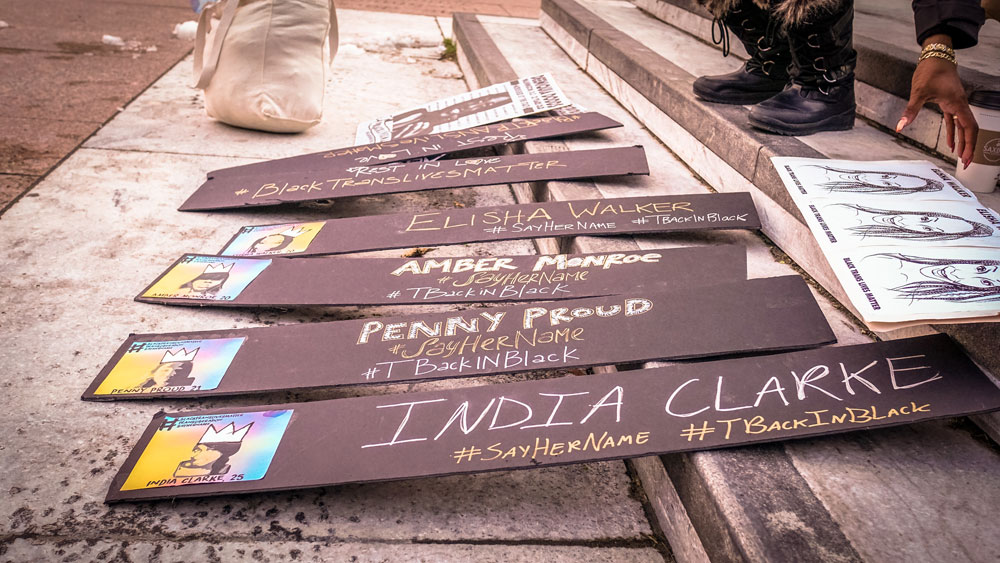
As many as 14 states have proposed legislation against the LGBTQ community, some of them targeting exclusively transgender youth, since President Joe Biden took office. According to the Human Rights Campaign (HRC), an organization with 40 years of experience in fighting for equality and against discrimination, the Heritage Foundation, the Alliance Defending Freedom (designated by Southern Poverty Law Center as a hate group), and Eagle Forum are key donors behind this rise of these legislative efforts.
Conservative state legislators in Alabama, Arizona, Georgia, Iowa, Mississippi, Montana, South Dakota, and Tennessee are pushing for new legislation that directly targets trans youth to restrict the participation of trans children in sports based on their gender identity, to refuse them the right to change their birth certificate, and to deprive them of gender-affirming health care rights.
A number of groups have created the “model legislation” now cropping up in state legislative bills across the country. Model legislation is a decades-old “copycat” strategy used to push policies through state legislatures quickly. The Center for Public Integrity tracked this trend for over a year since 2019 in collaboration with USA Today and the Arizona Republic, for which they won the 2020 Goldsmith Prize for Investigative Reporting.
“These bills are not addressing any real problem, and they’re not being requested by constituents. Rather, this effort is being driven by national far-right organizations attempting to sow fear and hate,” observes Wyatt Ronan in a statement by HRC. However, “opposing equality is highly unpopular—even among Trump voters.”
In a poll conducted by HRC and the Hart Research Group, they found at least 60 percent of Trump voters across 10 swing states say transgender people should be able to live freely and openly. Eighty-seven percent support equal access to medical care for transgender people. Essentially, the bills above are not being advocated by these states’ constituents; rather, they serve the agenda of a small elite.
Sign up for our free newsletters
Subscribe to NPQ's newsletters to have our top stories delivered directly to your inbox.
By signing up, you agree to our privacy policy and terms of use, and to receive messages from NPQ and our partners.
Most legislative proposals are stuck in committees, but two bills in Montana against sports and trans healthcare equality passed in committee and are headed to votes in the full state House of Representatives. Montana’s House Bill 113 would keep teens from having access to drug treatments, such as hormones and puberty blockers, or gender-related surgeries.
The Trevor Project, a national organization that focuses on suicide prevention among LGBTQ youth, severely condemned these bills which mistreat transgender and nonbinary youth, who don’t need additional stress—particularly in a year when their lives have been already severely disrupted by COVID-19. Fifty-two percent of transgender and nonbinary youth said they seriously considered suicide in the past year, according to one of Trevor Project’s national surveys.
In a statement, Sam Brinton, Trevor Project’s vice president of advocacy and government affairs, says, “We know based on our research that respecting and affirming a young person’s gender identity is essential to their mental health and well-being. This discriminatory policy would only work to increase the kind of social isolation and stigma that contributes to self-harm and suicide risk. We urge the Montana House to reject this cruel and unnecessary bill.”
Fortunately, LBGTQ advocates are finding allies in the Biden White House, and Biden’s executive orders in support of LGBTQ and trans rights have garnered overwhelming popular support. State legislators are taking notice: The South Dakotan bill that blocked transgender people from changing their birth certificates was unanimously rejected by a Senate committee last Friday. Hopefully, this becomes part of a national trend to end these discriminatory bills, once and for all.—Sofia Jarrin
Correction: This article has been changed from its initial form to remove a sentence connecting the Eagle Forum with the insurrection at the Capitol. A spokesperson for the Forum says the group was not involved in any activity on January 6, 2021. NPQ regrets the error.













